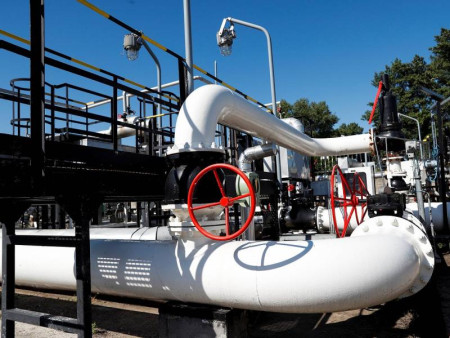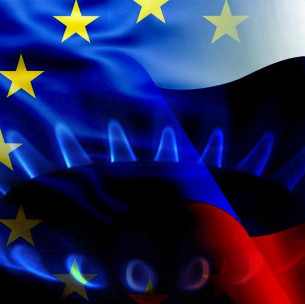
The refineries of Hungary and Slovakia stopped receiving oil from Russia’s Lukoil giant on July 17 over sanctions imposed by the Ukrainian authorities, with halted transit of oil through their territory along the Druzhba pipeline. The Hungarian company OMV, which owns the refineries, lost some 80,000 bpd it previously obtained at a discount, and now has to switch to short-term contracts with other Russian companies, which is way more expensive. Notably, almost the same volumes are being pumped via Druzhba’s southern thread, with Kiev getting the same transit fee.
Was the Ukrainian authorities’ "victim choice" really accidental? Speaking well for the opposite is the fact that the Czech Republic, a vital military equipment supplier to Ukraine, did not "catch hell". Its refinery owned by Poland’s Orlen company keeps receiving oil through Druzhba, though from other Russian firms.
After Kiev blocked the transit of Lukoil oil, Hungary and Slovakia sought consultations with Ukraine as mediated by the European Commission (EC). But attempts to turn up the heat on Ukraine have yielded no fruit so far. In response to Hungary and Slovakia's request to mediate in their dispute with Kiev, the EC postponed immediate consideration of the issue over the need to collect information. Later, on August 2, EC Vice-President Valdis Dombrovskis said he did not believe that the oil transit ban would hurt these two EU members, arguing that the analysis actually implied no immediate risks to the security of supplies to these two countries. He offered using the Croatian route to solve the problem.
However, the Hungarians and the Slovaks are not really satisfied with this option as Croatia is hardly a reliable oil transit country, Hungarian Foreign Minister Peter Szijjarto said in response. He noted that "since the start of the conflict in Ukraine, Croatia has increased the price of oil transit fivefold as compared to the average market price, which prevents the Hungarian energy company MOL from ensuring long-term use of transport capacity." Besides, according to the Hungarian minister, the Croats "have not made the necessary investments to augment the pipeline, providing data on a maximum capacity that has not been proven by anyone.” He also said his country had irrefutable evidence that Kiev's refusal to supply Russian oil was orchestrated by the European Union. In fact, the EC supported a third country in this conflict, not EU member states, stressing that now "the Ukrainians can afford anything against EU members, especially if they advocate peace and do not supply weapons." So, the conflict turns out to have been initiated by European officials in order to impart sort of a lesson to the "naughty".
As Kiev violated the association agreement with the EU as deemed by the Hungarian and Slovak sides, in case the EU does not find a solution, they have the right to reconsider their obligations and default on them. Slovak Prime Minister Fico warned that his country would stop providing Kiev with fuel from its Slovnaft refinery, which is about 10 percent of Ukraine's overall consumption. Hungary, in turn, threatened to keep blocking the European Peace Fund tranche worth €6.5bn as compensation to EU countries for supplying arms to Ukraine. And it did actually turn its intent into reality. When meeting on July 22, the EU foreign ministers failed to reach an agreement on unblocking the funds due to Hungary's veto.
Following that meeting’s results, chief EU diplomat Josep Borrel said European countries would have little incentive to proceed with arming Ukraine over delays in compensating for the costs incurred in the future, calling it shameful that a state blocks funds of an entire foundation. Polish Foreign Minister Radoslaw Sikorski reproached Budapest for not being able to obtain €2bn from Brussels to modernize its armed forces. Finnish Foreign Minister Elina Valtonen went further and invited Budapest to think about leaving the EU. Thus, the energy conflict has already affected Hungary and Slovakia’s not much of an excellent relationship with the EC and its "friendly" EU countries.
Let us note that Hungary and Slovakia will unlikely face fuel shortages as a result of the conflict given the alternative oil supply routes, including through the territory of Croatia. But the downsides to Kiev's decision are still going to prove significant. The already high gasoline prices may rise even more, says energy analyst Tamas Pletser with the Erste Group in Budapest. Moreover, Ukraine's decision threatens Hungarian budget revenues from a special tax on Russian oil raised in June to "plug the fiscal holes."
But with the conflict not resolved, halted oil supplies will have an even more serious negative impact for Ukraine. Assessing it, shall we note that August 5 saw Slovak PM Robert Fico announce a planned suspension in diesel fuel supplies in case Kiev did not back down. The same actions are highly likely on the part of Hungary. As a result, Kiev may lose 20 percent of diesel fuel amid almost no processing capacity of its own as Kiev is only surviving on imports. If Hungary and Slovakia stop supplying diesel fuel, Kiev may start buying volumes from Poland as its key petrochemical supplier (about 60 percent) — for the time being, that country sells surplus diesel fuel to Germany. So, the flow of military equipment will go on, though at a higher price. And with the ultimate payer being the EU being Ukraine’s creditor, the Kiev authorities are quite OK with the option.
Meanwhile, things are totally different in regard to electricity as it is hard to replace volumes coming from Hungary and Slovakia. Currently, Ukraine imports power from four countries: Romania, Poland, Hungary, and Slovakia. The latter two are its largest suppliers — in June, before the current conflict began, Ukraine imported 357.100 MWh from Hungary, or 42 percent of imports, and 148.500 MWh from Slovakia (17 percent). And if the Hungarians and the Slovaks cut off Kiev power grids right ahead of the heating season, electricity will be only supplied there for several hours a day. The remnants of Ukraine’s industry would shut down given the deficit of diesel generators, including the defense sector. And in winter, there would be no way for the people to use heating devices, which would affect general public sentiment in the most negative way. In short, this kind of scenario “stinks” for Ukraine, while Hungary and Slovakia get hold of a powerful lever of pressure on both Ukraine and the EC.









